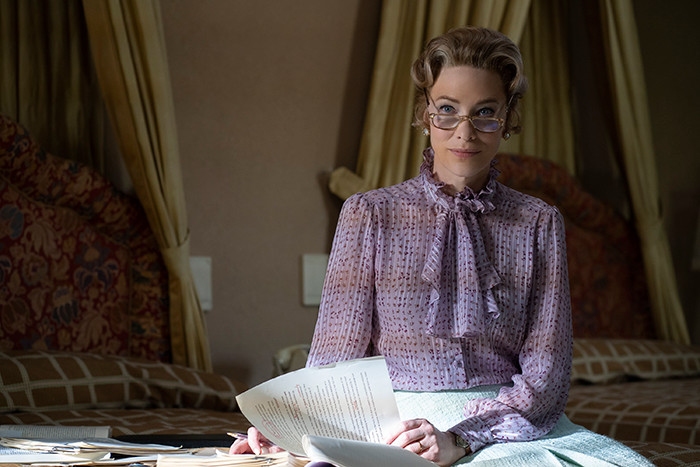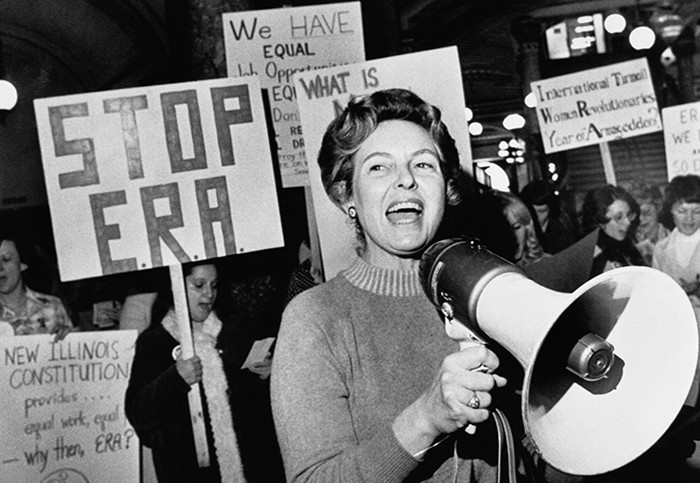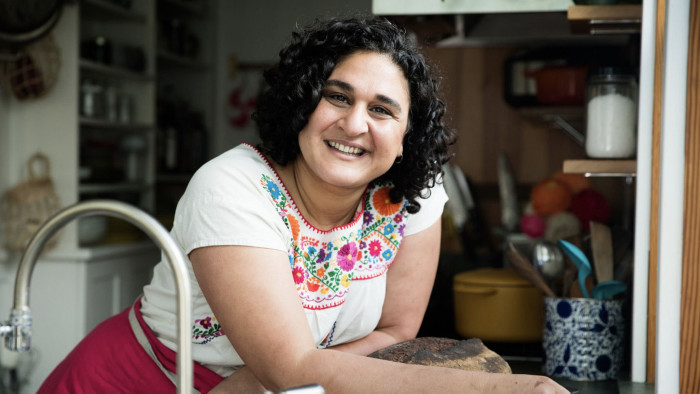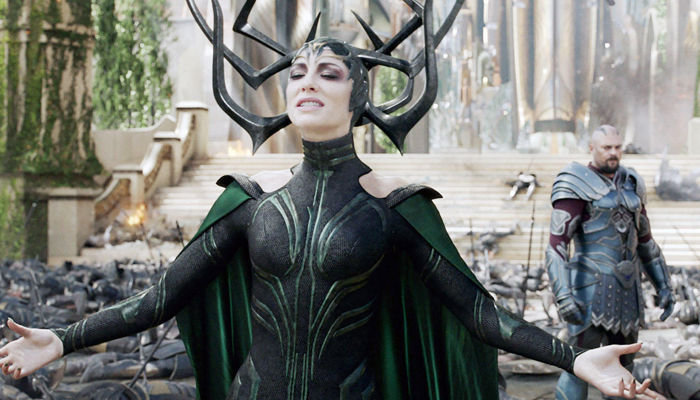Cate Blanchett on becoming a conservative anti-libber for Mrs America

Simply sign up to the Film myFT Digest -- delivered directly to your inbox.
Unlike some other film stars, Cate Blanchett has always gone out of her way to avoid being typecast. One of the most versatile and busiest actors working today, she has navigated smoothly from American indies to foreign-language art-house films to mainstream blockbusters and won two Oscars in the process. She has cherished what she calls “mean roles” and “elegant villainesses”, as in Kenneth Branagh’s Cinderella, alongside parts in actioners such as Thor: Ragnarok. She even played one facet of Bob Dylan in Todd Haynes’s I’m Not There. She is, in short, anything but one-dimensional.
This may be the only thing she has in common with her character in the new television series Mrs America. Phyllis Schlafly was a loud, brash and fiercely conservative opponent of women’s rights, yet she is presented as a complex figure: we see her fighting for acceptance in a political sphere dominated by men, and facing personal struggles within her family. In real life, Schlafly remained vocal and active until her death in 2016, but not widely known outside US conservative circles, and Blanchett had heard of her only “tangentially” before taking on the role.
“I had seen this little old lady in her nineties being trucked out at the tail-end of Trump’s [presidential] campaign,” Blanchett says on a video call from lockdown. “There was a standing ovation for her, and she seemed to be important and treated with profound respect by the Republican party. Then I saw Trump attending her funeral, and I thought, ‘Who is this woman?’”
For Blanchett, it became a personal journey “to try to understand what was so abhorrent to Phyllis and the people who were like-minded around her, what was so terrifying for them about the notion of equality”.

Above all, Schlafly is famous for campaigning (successfully) against the ratification of the Equal Rights Amendment (ERA) of the US Constitution in the 1970s, which aimed to invalidate state and federal laws discriminating against women. This becomes the main focus of the series. “A lot of her achievements — some might say dubious achievements — are that she . . . single-handedly embedded into the spine of the Republican party the notions of pro-life, pro-family and pro-American.”
Taking place between 1971-80, Mrs America relates history in a way that feels neither superficial nor didactic — and anything but dated in the era we are living through. “I felt that each day as we were filming, the show became more relevant,” says Blanchett. “The language of how we discuss women in the world, whether we spend our time primarily in the home, or whether we try and work and also have a family, or whether we devote ourselves entirely to our career, or any combination thereof, there is still a sense that we have to make this work alone, and that if we fail, it is our responsibility.”
Each episode of the show is titled after the woman who is its primary figure, the first being Schlafly. Introduced prancing around in a bathing suit at a political rally, she promotes herself as the embodiment of the “perfect” happy housewife, raising six children with husband Frank (played by John Slattery of Mad Men fame), a woman that men can easily support. That might mean the occasional light physical touch or dirty joke told in her presence, but Schlafly believes the only way to be taken seriously is to stay in her place and feed on men’s fear: that one day their wives might turn against them.

Working in other prominent female figures of the era — Gloria Steinem, Betty Friedan, Bella Abzug — the series, created by Dahvi Waller, explores how women’s rights became a battleground in the culture wars that helped bring about the Moral Majority movement and change for ever the American political landscape.
For Blanchett, it’s a multi-faceted story about the numerous ways to be a woman, and the creation of divides that still exist today. “Gloria Steinem said something fascinating: that she never heard a man ask her advice on how to combine marriage and a career. Here we are in 2020, and we are still asked those same questions that our male counterparts just do not get asked.”
Culture Call podcast

We speak to chef Samin Nosrat, star of the Netflix hit Salt Fat Acid Heat, about cooking in a pandemic, the meaning of comfort food – and the future of restaurants. Listen here
During the making of the series, there were many times when she turned to other women on the set and said, “Oh my God, haven’t you had this conversation at home? Don’t you feel like you are back in our time, and yet we are saying we are in 1974?” For her, the show is “a reverse-engineering process of: how did we get to where we are now?”
There were also personal resonances for Blanchett, whose father died when she was 10. She recalls: “In my high-school years, there was a big question of whether you identified as a feminist or not. I was raised by a single mother, and my grandmother was in the house. My mother had to work, but she didn’t identify as a feminist, based on the notion then that if you were feminist, you were anti-family . . . Interestingly, it was women themselves who helped kill the notion of equal rights, and that influenced the way future generations of women picked it up.”

Blanchett, who turns 51 next month, has been married for 23 years, to the Australian playwright and screenwriter Andrew Upton. They have raised three sons and adopted a baby girl in 2015. After years of living in Australia, they now live in England, in the Sussex countryside.
“We are self-isolating, like everybody, and it’s very difficult. We are all in it together, and some of us are in more perilous positions than others,” says Blanchett, acknowledging her privileged situation as one of Hollywood’s highest-paid actors.
She admits to being “a binge-watcher, getting obsessed with certain series, especially limited series”. Recently, the family have been rewatching The Sopranos because their youngest son Ignatius hadn’t seen it. Foreign films are also high on the menu. She watched Lars von Trier’s The Kingdom with their oldest son Dashiell John, and, with her husband, revisited Krzysztof Kieslowski’s Dekalog, “one of my all-time favourite pieces of television”. There is only one big screen in the house and communal viewing is encouraged. “It’s based on my fond childhood memories, when there were only terrestrial channels, so you tuned in at a certain time and you watched with the entire family.”

Soon families may be gathering to binge-watch Mrs America, and Blanchett has high expectations for what the show can achieve. “The systems we live in are very fragile, and our show points out the cracks in those systems,” she says. “If we have learnt anything from the fights around the ERA, it’s that fear-based language and polarising attacks don’t progress the conversation at all.”
She hopes that “viewers will see the connective tissue between the desires of traditional women and women who are feminist, that there is lot more that unites us than separates us. What happened in the 1970s was this profound schism between women of different ambitions. I hope that Mrs America will be a place where a conversation can be reignited around the points of intersections, rather than the points of division.”
‘Mrs America’ is on BBC2 in the UK from Wednesday July 8 and on Hulu in the US now
Comments